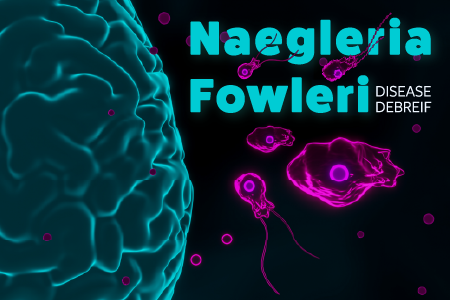This podcast series explores the challenges, opportunities, and best practices surrounding First Nations data ownership, control, access, and possession.
Stream: NCCID
Small but Mighty: Promoting Antimicrobial Stewardship Activities in Rural Locations
Join us for a webinar discussing the efforts to promote antimicrobial stewardship interventions in rural locations in Canada. We will hear from a senior pharmacist in rural Saskatchewan about her experiences in promoting more appropriate antimicrobial use in the local area. Bring questions or add comments based on your experience of AMS in rural settings to help broaden perspectives.
The Farm & AMR: Antimicrobial Resistance and Antimicrobial Use in Food-producing Animals
Dr. Jan Sargeant helps build our One Health understanding of AMR in this episode focused on antimicrobial resistance and antimicrobial use in Canadian food-producing animals. The episode highlights how veterinarians and producers are working to use antibiotics responsibly, gains made, challenges that remain, and key interventions that could do more to preserve the effectiveness of antimicrobials for people and animals alike.
One Health 101 – Understanding the Connection Between Humans, Animals, and the Environment in the Fight Against AMR
Dr. Jane Parmley joins NCCID for our opening episode of the Getting to Know OH mini-series to help introduce the fundamentals of the One Health concept and its relevance for public health decision-making. Dr. Parmely shares her views on the timeliness and value of a One Health approach to current challenges addressing the complex problem of AMR, as well as inspiring examples of where it is being applied.
Drop the Label: Penicillin Allergy de-Labelling is for Everyone
Pen-allergy de-labelling can be a powerful antimicrobial stewardship tool, clarifying options available to prescribers selecting the most appropriate antibiotic for their patients. Join leads in the BC-based multidisciplinary ‘Drop the Label’ initiative as they share successes and challenges in developing, implementing, and scaling up patient education and clinical tools to support prescribers serving people with potential antibiotic allergies.
How Primary Care Providers Can Support Immigrant and Refugee TB Clients
This webinar is part of the Public Health Agency of Canada’s (PHAC’s) Communicable Diseases and Infection Control (CDIC) Webinar Series and is co-hosted by the National Collaborating Centre for Infectious Diseases (NCCID).
Long-Acting Injectable Antiretroviral Medications (LAI-ARV) Fact Sheet
LAI-ARVs are a new form of combined extended-release antiretroviral therapy that avert the need for daily medications. They are given by injection for both HIV treatment and HIV pre-exposure prophylaxis (PrEP). This fact sheet overviews these medications’ safety profile, effectiveness and candidacy.
National Wastewater Monitoring Program
Wastewater has already been used to show early detection of COVID-19 in some Canadian jurisdictions prior to an increase of clinically diagnosed cases. As COVID-19 can be characterized by symptomatic and asymptomatic infection, it is important to identify the presence of undiagnosed cases to minimize the likelihood of outbreaks.
Naegleria Fowleri
Naegleria fowleri is a type of single-celled organism called a free-living amoeba. It lives in soil and warm freshwater and is distributed worldwide. Naegleria fowleri is generally harmless to humans but can cause a deadly infection called primary amoebic meningoencephalitis (PAM) if it reaches the brain.
From Sewers to Solutions: Transforming Public Health Through Wastewater Surveillance Success Stories
Over the past few years, wastewater-based surveillance (WBS) has rapidly emerged as a valuable tool in public health, providing community-level insights on infectious diseases, substances of potential abuse and other agents of interest.
Measuring What Counts: Equity Prompts for Public Health Preparedness and Resilience
This guidance document encourages decision-making and action for pandemic preparedness and response that explicitly incorporate attention to structural and social determinants of health and address health inequities; and
Augments existing public health system resilience indicators to measure performance in addressing inequities and sustaining or enhancing equitable approaches now and in future outbreaks and pandemics.
Management of Community-Acquired Pneumonia in Adults Infographic
The Community Acquired Pneumonia (CAP) management tool provides guidelines for treating CAP among adult patients in Manitoba. The tool integrates antimicrobial stewardship principles for optimizing antibiotic use by incorporating current evidence concerning the choice of drug, dose, delivery method, and duration of therapy for CAP.


